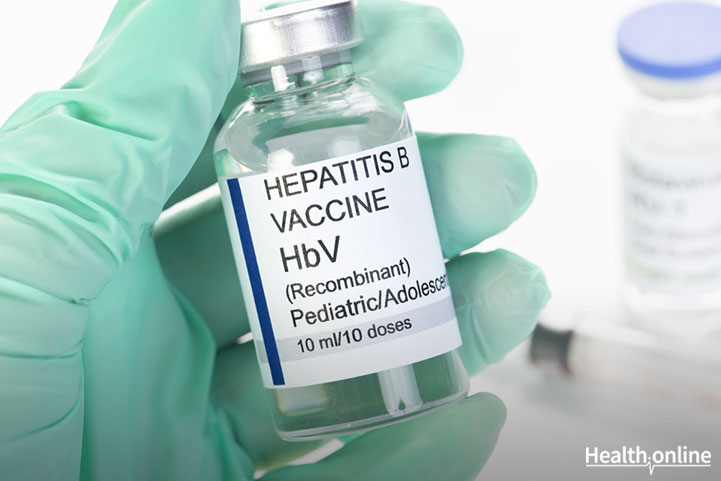
Hepatitis B Vaccine
Rationale
Hepatitis is an inflammatory liver disease that is spread by blood and body fluids such as sex, needle sharing, blood transfusion, tattoos. Hep B causes clinical manifestations such as yellowish discoloration of your eyes, specifically your sclerae. Other symptoms include fever and bodily complaints, such as weakness and anorexia (no desire to eat). When you experience yellowish discoloration of your sclerae, you need to undergo some laboratory tests to exactly find out your medical problem.
Is it hepatitis B, A, or something else? There could be an obstruction in your hepato-biliary tree, which is the tube connecting your liver to your gallbladder and to your intestine. However, if there was a recent history that you had a blood transfusion, intravenous injections, or tattoo construction in any part of your skin, it is possible that you have been afflicted with hepatitis B.
The disease itself could be well managed by medical doctors in the hospital or in medical clinics in your locality. However, what is alarming and life-threatening is the fact that hepatitis B could lead to liver cancer. It means that if you have been afflicted with hepatitis B, many years later, you will suffer from liver cancer.
The correlation coefficient between hepatitis B and liver cancer is almost 100%. Thus, if you have been afflicted with the disease at a certain time in your life, you will surely have liver cancer in the future. Remember that liver cancer is largely and generally fatal. Thus, you need to prevent its occurrence by having the vaccination for hepatitis B.
Generic and brand names
The generic name of the vaccine is Hepatitis B (rDNA) vaccine (adsorbed). The brand name is Engerix-B or Euvax B.
Composition of the vaccine
The vaccine is composed of spherical particles of 20 nm in average diameter containing non-glycosylated hepatitis B surface antigen (HBsAg) polypeptides and a lipid matrix consisting mainly of phospholipids.
Mechanism of action
If the HBsAg is injected into your system, your body will produce antibodies against hepatitis B, thereby protecting you from contracting the disease.
Schedule of administration
The first dose of the vaccine is given at elected date, followed by 2nd dose after 1 month from the first dose. The 3rd dose is given five months after the 2nd dose. There is also a rapid series able to be given 0,7,21 days and then 1 year.
Indications and usage
This vaccine is indicated for active immunization against hepatitis B infection for all subjects of all ages considered at risk of exposure to the disease. The following groups are identified to be at high and increased risk of the infection, thereby necessitating the administration of the hepatitis B vaccine:
- Health care personnel: This includes medical doctors, nurses, physical therapists, and phlebotomists.
- Patients frequently receiving blood products: This includes patients who have been receiving blood transfusions.
- Personnel and residents of institutions: This includes the people who work in the hospital, outside of the medical personnel. These are the accounting and procurement people, those in the security and janitorial services, and those in the food and maintenance services.
- Persons at increased risk due to their sexual behavior: This group refers to individuals—be it heterosexual or homosexual—who engage in an unsafe sexual behavior.
- Illicit users of addictive injectable drugs: These are people who inject themselves with addicting drugs.
- Travelers to areas with a high endemicity of hepatitis B: Infants born of mothers who are hepatitis B carriers
- Persons originating from areas with a high endemicity of hepatitis B: Patients with sickle-cell anaemia
- Patients who are candidates for organ transplantation: Household contacts of any of the above groups and of patients with acute or chronic hepatitis B infections
- Patients with chronic liver disease (CLD) or at risk of developing CLD
- Others: Police personnel, fire brigade personnel, armed forces personnel and anybody who through their work or personal lifestyle may be exposed to hepatitis B.
Precautions
Vaccination should be postponed if the subject suffers from an acute severe febrile illness. Minor infection, however, is not a contraindication for immunization.
- Appropriate medical treatment and supervision should always be readily available in case of rare anaphylactic reactions following the vaccination;
- This vaccine should never be injected in the buttock or intradermally since this may result in lower immune response;
- It should never be injected intravenously.
Side effects
- Very common side effects are: pain and redness at injection site, fatigue, irritability
- Common side effects are: loss of appetite, headache, drowsiness, gastrointestinal symptoms (nausea, vomiting, diarrhea, abdominal pain), swelling at the injection site, malaise, fever, reaction at the injection site such as induration
- Uncommon side effects are: dizziness, myalgia, influenza-like illness
- Rare side effects are: lymphadenopathy, paresthesia, rash, pruritus, urticaria, arthralgia
Dosage and mode of administration
The dose per injection is 20 ug (1.0 ml) for 20 years old and older adults, to be given intramuscularly. This vaccine should never be injected intravenously, subcutaneously, or intradermally.




